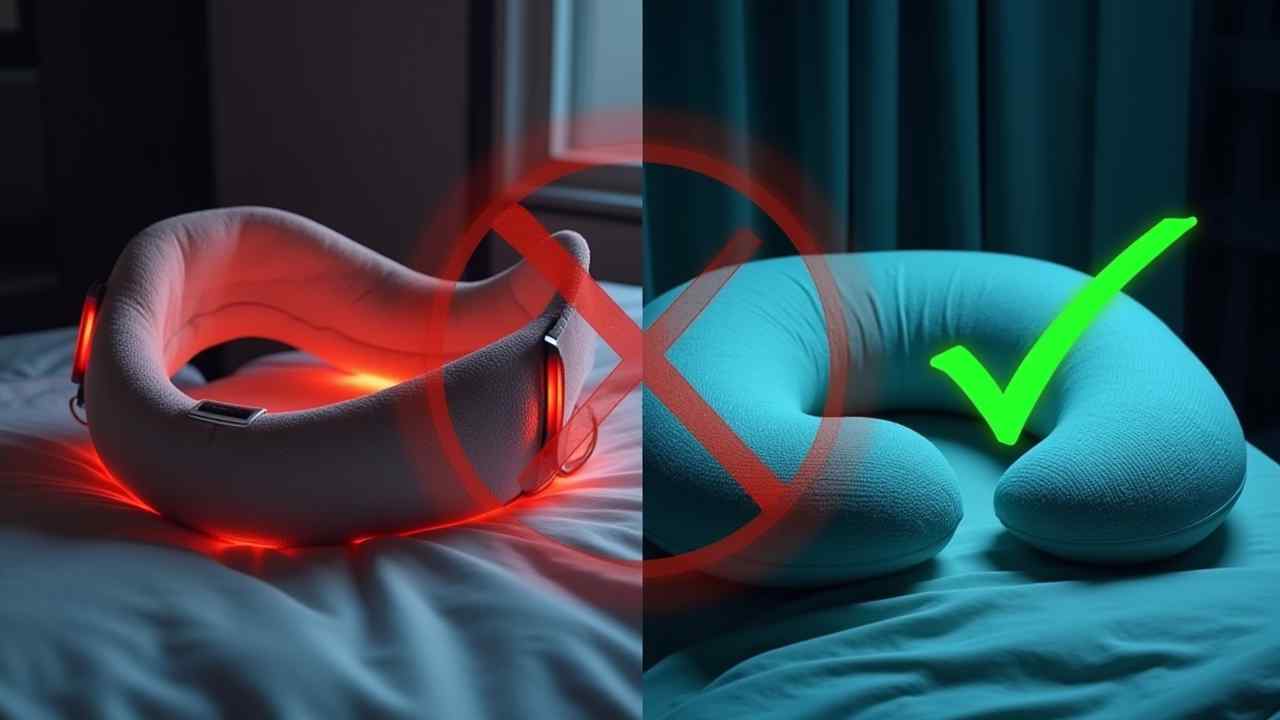
🩺 Should You Use a Neck Brace for Sleeping? (A Doctor's Advice)
🩺 Should You Use a Neck Brace for Sleeping? A Doctor's Advice 🩺
❗ CRITICAL MEDICAL WARNING: A neck brace (cervical collar) is a medical device. It should only be used under the direct instruction of a doctor or physical therapist. Using a neck brace without a proper medical reason can be harmful and may worsen your condition over time.
If you are struggling with neck pain, you might be looking for anything that offers relief. The idea of using a supportive neck brace for sleeping can seem like a logical solution. You might think it will hold your neck in the right position and prevent pain.
However, for general neck pain, this is not the right approach. In fact, it can cause more problems in the long run. This guide will explain the proper use of neck braces. We will also cover the risks and the safer alternatives. Let's explore the best way to manage neck pain at night. ✅
🤔 When is a Neck Brace Medically Necessary for Sleeping?
A neck brace is a vital tool, but only for specific situations. Its purpose is to immobilize the cervical spine. This is to prevent further injury or to allow for healing after a specific event. A doctor will only prescribe a neck brace for sleeping in a few cases.
- After a Traumatic Injury: Following a car accident or a serious fall, a rigid neck brace is used. This is to stabilize the neck and prevent potential spinal cord damage.
- Following Cervical Spine Surgery: A brace is essential after certain neck surgeries. It holds the spine in place while the bones and tissues heal.
- For Severe, Acute Pain: In some cases of severe nerve impingement, a doctor might recommend a soft collar for very short-term use to provide relief.
In all these situations, the type of brace and how long you wear it is determined by a doctor.
⚠️ What Are the Serious Risks of Using a Neck Brace Without a Doctor's Order?
Using a neck brace for sleeping to self-treat general neck pain is a bad idea. While it might provide temporary relief, it can lead to significant long-term problems. The risks far outweigh the benefits.
Can it weaken your neck muscles?
Yes. This is the biggest danger. The neck brace does all the work of supporting your head. Your neck muscles, which are supposed to do that job, become inactive. Over time, this leads to muscle atrophy (weakening). Weaker neck muscles can lead to more pain and instability in the future.
Can it cause dependence and stiffness?
Your neck is designed to move. Restricting its movement for eight hours every night can lead to increased stiffness. Your body can also become reliant on the brace for support. This makes it difficult and painful to function without it.
⭐ What Are Safer Alternatives for Managing Neck Pain at Night?
The good news is, there are much safer and more effective ways to manage nighttime neck pain. These methods focus on supporting your neck's natural alignment. They also work to strengthen it, not weaken it.
1. Use a Cervical Pillow: This is the number one recommended tool. A cervical pillow has a special contour. It is designed to support the natural curve of your neck. It helps to keep your spine in a neutral alignment all night. This is a far better solution than a brace. 🛌
2. Improve Your Sleeping Position: The best position for your neck is sleeping on your back. If you are a side sleeper, use a pillow that is the right height. Your pillow should be just thick enough to keep your head and neck in a straight line with your spine.
3. Avoid Stomach Sleeping: Sleeping on your stomach forces your head to be twisted to one side. This puts a huge amount of strain on your neck. It is a major cause of neck pain.
If you have persistent neck pain, do not reach for a brace. Make an appointment with a doctor or a physical therapist. They can give you a proper diagnosis and a safe, effective treatment plan. 🩺